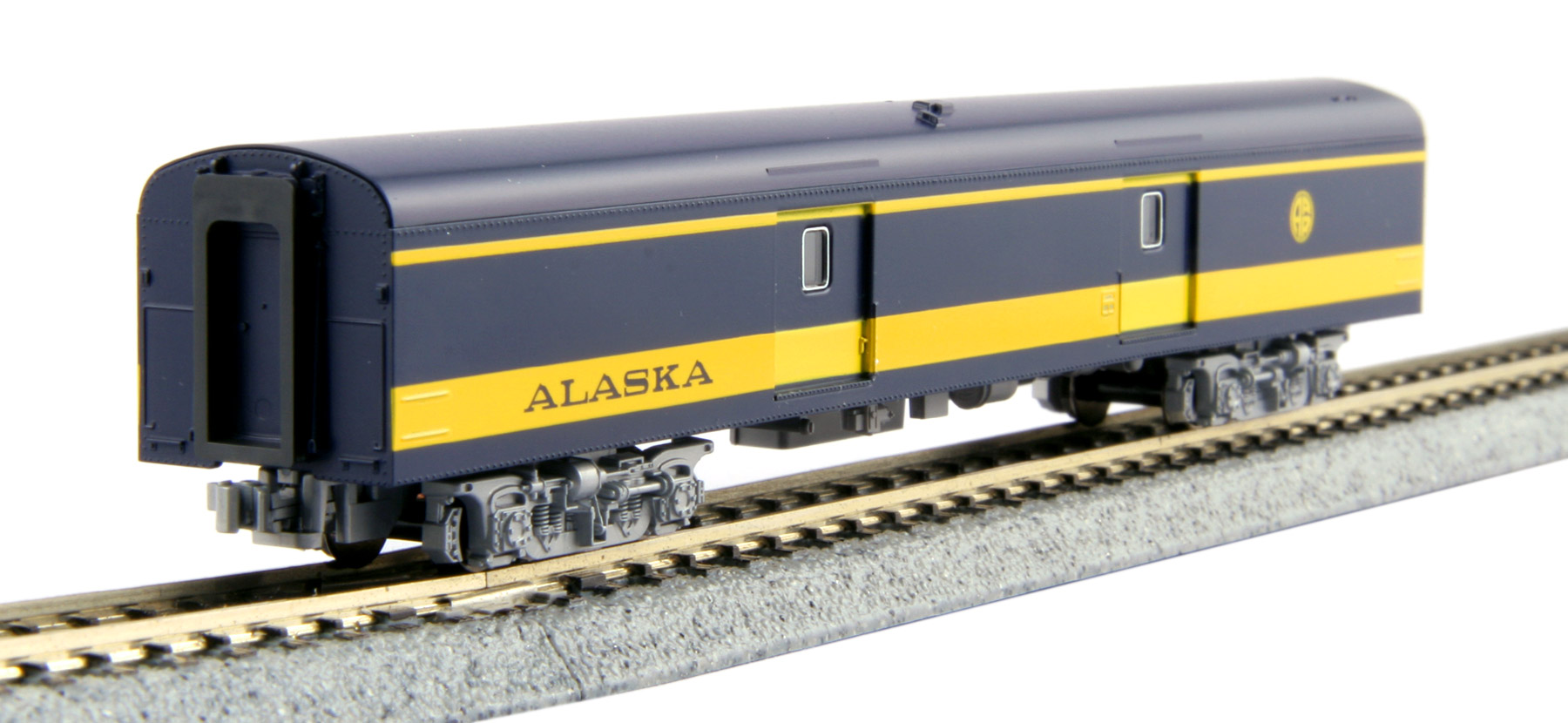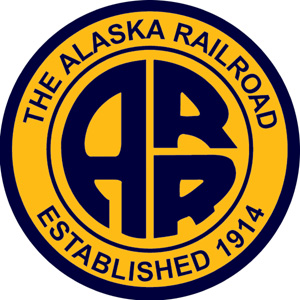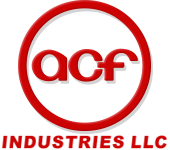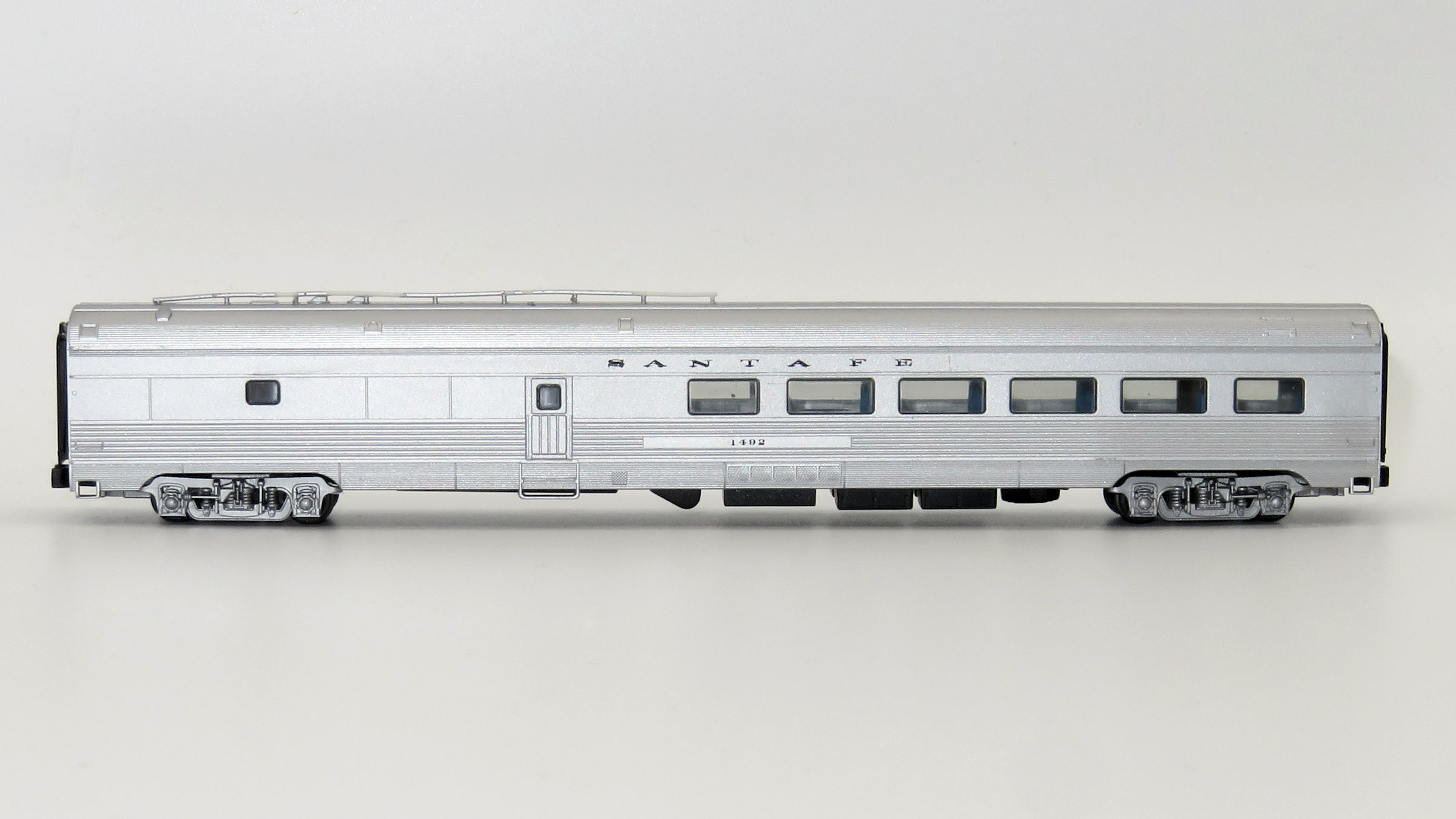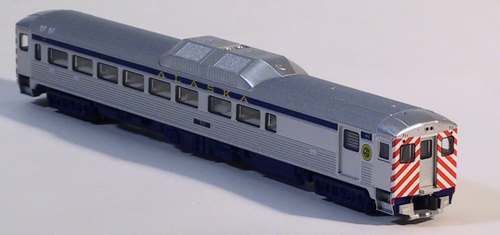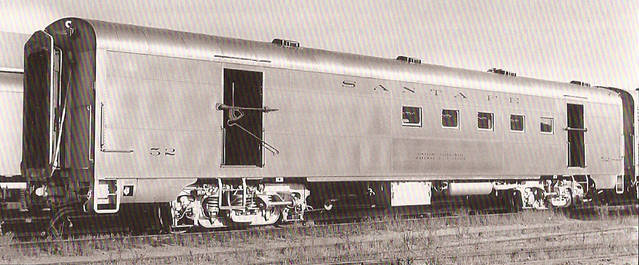Prototype History: In the post-war period, passenger rail service boomed. In order to increase efficiency, the railroads set to replacing their old wood, steel and concrete heavyweight passenger cars with newer lightweight, streamlined cars. The new cars were made from stainless steel, aluminum and Cor-Ten steel. These cars required less motive power to pull and were cheaper to manufacture. Production was also concentrated in a few manufacturers rather than each railroad making its own. This led to standardization which further reduced costs. The new "lightweight" cars were also given "streamlined" designs to make them more visually appealing. Budd, Pullman Standard and ACF were all well known manufacturers of these cars.
ACF produced both smoothside and corrugated cars. Cars from ACF were used on Great Northern's Empire Builder route as well as by many other railroads offering passenger service.
ACF produced both smoothside and corrugated cars. Cars from ACF were used on Great Northern's Empire Builder route as well as by many other railroads offering passenger service.
Road Name History: Born in 1923 with the consolidation and connection of the Tanana Valley and Alaska Northern railroads, the line was owned by the Federal Government (under the Department of the Interior) from the outset, later becoming the responsibility of the Department of Transportation in 1967. In the mid-80s it was sold to the State of Alaska.
The Alaska Railroad links Anchorage with the port of Whittier and Seward to the south, and Fairbanks and environs to the north. Total mileage is about 525 putting it between Bangor & Aroostook and New York Ontario & Western in relative size. Alaska does run its own passenger service over the length of the railroad. Although the Alaska Railroad is disconnected from the rest of the North American rail network, they do interchange with other railroads. A trio of sea-going barges ferry rail cars from the port of Whittier to Prince Rupert, British Columbia, and Seattle, Washington. ARR had collected a fleet of Alco RS-1s (and a few RSD-1’s) with cowls, effectively making them cab units unique to this line. These were later replaced by second generation EMD power. The big power on the line is a fleet of 28 SD70MACs. A dozen of these are equipped with HEP for use in passenger service.
The port of Whittier is hemmed in by the ocean on one side and mountains on the other. A 2.5 mile single track tunnel is the only way out of the port. The line through the tunnel is paved like street trackage so that highway traffic can use the tunnel. It is a single lane so highway traffic going south enters from the top of the hour until quarter after. Northbound traffic enters from the bottom of the hour until 45 after the hour. Trains get priority and proceed as soon as traffic has cleared.
The Alaska Railroad links Anchorage with the port of Whittier and Seward to the south, and Fairbanks and environs to the north. Total mileage is about 525 putting it between Bangor & Aroostook and New York Ontario & Western in relative size. Alaska does run its own passenger service over the length of the railroad. Although the Alaska Railroad is disconnected from the rest of the North American rail network, they do interchange with other railroads. A trio of sea-going barges ferry rail cars from the port of Whittier to Prince Rupert, British Columbia, and Seattle, Washington. ARR had collected a fleet of Alco RS-1s (and a few RSD-1’s) with cowls, effectively making them cab units unique to this line. These were later replaced by second generation EMD power. The big power on the line is a fleet of 28 SD70MACs. A dozen of these are equipped with HEP for use in passenger service.
The port of Whittier is hemmed in by the ocean on one side and mountains on the other. A 2.5 mile single track tunnel is the only way out of the port. The line through the tunnel is paved like street trackage so that highway traffic can use the tunnel. It is a single lane so highway traffic going south enters from the top of the hour until quarter after. Northbound traffic enters from the bottom of the hour until 45 after the hour. Trains get priority and proceed as soon as traffic has cleared.
Brand/Importer Information: KATO U.S.A. was established in 1986, with the first U.S. locomotive model (the GP38-2, in N-Scale) released in 1987. Since that time, KATO has come to be known as one of the leading manufacturers of precision railroad products for the modeling community. KATO's parent company, Sekisui Kinzoku Co., Ltd., is headquartered in Tokyo, Japan.
In addition to producing ready-to-run HO and N scale models that are universally hailed for their high level of detail, craftsmanship and operation, KATO also manufactures UNITRACK. UNITRACK is the finest rail & roadbed modular track system available to modelers today. With the track and roadbed integrated into a single piece, UNITRACK features a nickel-silver rail and a realistic-looking roadbed. Patented UNIJOINERS allow sections to be snapped together quickly and securely, time after time if necessary.
The Kato U.S.A. office and warehouse facility is located in Schaumburg, Illinois, approximately 30 miles northwest of Chicago. All research & development of new North American products is performed here, in addition to the sales and distribution of merchandise to a vast network of wholesale representatives and retail dealers. Models requiring service sent in by hobbyists are usually attended to at this location as well. The manufacturing of all KATO products is performed in Japan.
Supporters of KATO should note that there is currently no showroom or operating exhibit of models at the Schaumburg facility. Furthermore, model parts are the only merchandise sold directly to consumers. (Please view the Parts Catalog of this website for more specific information.)
In addition to producing ready-to-run HO and N scale models that are universally hailed for their high level of detail, craftsmanship and operation, KATO also manufactures UNITRACK. UNITRACK is the finest rail & roadbed modular track system available to modelers today. With the track and roadbed integrated into a single piece, UNITRACK features a nickel-silver rail and a realistic-looking roadbed. Patented UNIJOINERS allow sections to be snapped together quickly and securely, time after time if necessary.
The Kato U.S.A. office and warehouse facility is located in Schaumburg, Illinois, approximately 30 miles northwest of Chicago. All research & development of new North American products is performed here, in addition to the sales and distribution of merchandise to a vast network of wholesale representatives and retail dealers. Models requiring service sent in by hobbyists are usually attended to at this location as well. The manufacturing of all KATO products is performed in Japan.
Supporters of KATO should note that there is currently no showroom or operating exhibit of models at the Schaumburg facility. Furthermore, model parts are the only merchandise sold directly to consumers. (Please view the Parts Catalog of this website for more specific information.)
Item created by: gdm on 2016-03-06 13:22:56. Last edited by Alain LM on 2023-06-04 04:15:54
If you see errors or missing data in this entry, please feel free to log in and edit it. Anyone with a Gmail account can log in instantly.
If you see errors or missing data in this entry, please feel free to log in and edit it. Anyone with a Gmail account can log in instantly.


